
Hic... Hic... Hic!!!
It is embarrassing being in the middle of a conversation with your boss when then, all of a sudden, you start making weird noises: Hic, hic hic!!! Why do hiccups happen? Hiccups are the consequence of an irritated diaphragm, a muscle located below our lungs and that helps in the breathing process. The diaphragm can get irritated when you eat to much, too fast; also, when you drink carbonated beverages or too much alcohol; due to temperature changes or because you are under a lot of stress. To get rid of hiccups, you can try several things, like drinking water from the wrong side of the glass, holding your breath during 10 seconds.
- Important notification about information and brand names used in this slideshow!
- Photo courtesy of Tracie Masek by Flickr : www.flickr.com/photos/emotionaltoothpaste/119545079/
- www.familydoctormag.com/rumors-questions-and-myths/67-how-the-body-works.html
- http://him.uk.msn.com/health-and-fitness/odd-body-quirks-explained
- http://www.webmd.com/brain/ss/slideshow-weird-body-quirks
- http://www.everydayhealth.com/healthy-living-pictures/10-unexpected-body-quirks-explained.aspx#/slide-1
- http://www.mayoclinic.com/health/hiccups/DS00975/DSECTION=causes
- http://kidshealth.org/kid/talk/qa/hiccup.html
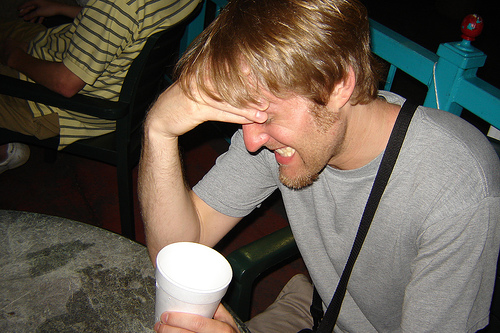
Brain freeze... Auch!
Sphenopalatine ganglioneuralgia is the scientific term for this strange feeling. Brain freeze occurs when you take something very cold, like ice-cream or a sip of freezing soda. This happens as a warning for us to know that, whatever we are eating at that moment, is too cold for our body to handle. When something extremely cold touches the upper part of our palate, it is also sensed by an artery that supplies blood to our brain. This artery, known as brain anterior cerebral artery, constricts right at the moment its temperature falls, increasing the blood flow that reaches the brain. An increase in blood flow means an increase in brain pressure, causing a very intense, yet short headache.
- Important notification about information and brand names used in this slideshow!
- Photo courtesy of Eammon by Flickr : www.flickr.com/photos/eammon/185887945/
- www.medicalnewstoday.com/articles/244458.php
- http://www.sciencedaily.com/releases/2013/05/130522095335.htm
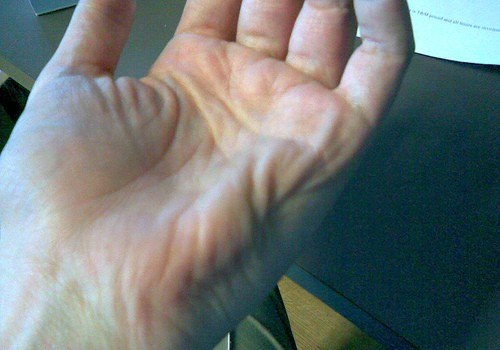
Exhausted muscles and cramps
Even though muscle cramps are harmless, they cause a lot of pain. Besides, they always seem to happen in the worst time. Have you ever woken up in the middle of the night having a muscle cramp? Cramps are involuntary contractions of the muscle and are mainly caused by an alteration of the normal muscle contraction mechanism. Muscle contraction requires certain minerals to happen, so, if you are dehydrated and your muscles are exhausted, you will certainly experience muscle cramps. Also, if any nerve is being compressed or the blood supply to your legs or arms is altered, it is more likely for you to suffer from muscle cramps.

I've got goosebumps!
You can experience this strange sensation when you feel cold, scared or in love. But, what causes it? Goosebumps resemble the skin of a chicken after its feathers have been plucked out, and are related to the release of adrenaline during stressful or emotional situations. Adrenaline causes the contraction of muscles located at the base of hair, causing it to erect. Piloerection, the scientific term for goosebumps, is a vestigial reflex, meaning that our ancestors had it and its function was mainly to raise body hair to appear bigger and scarier to predators. Nowadays, this reflex isn’t very useful, but is still related to survival responses.
- Important notification about information and brand names used in this slideshow!
- Photo courtesy of Brian by Flickr : www.flickr.com/photos/bmhkim/4352941554/
- www.scientificamerican.com/article.cfm?id=why-do-humans-get-goosebu
- http://chealth.canoe.ca/channel_section_details.asp?text_id=4739&channel_id=11&relation_id=27881

Ear popping or ear barotrauma
Ear popping is caused by differences in air pressure between the internal area of our eardrum and the external part. This is very common to see in divers. When they submerge into water, they experience an important change in pressures, which tightens the eardrum tissue and makes it pop. Yawning or swallowing can also cause ear popping; changes in altitude, when flying for example, also cause pressure changes and can provoke ear popping. When your ear pops, you literally hear and feel something popping inside of it; after that, you experience hearing loss, dizziness and pain.
- Important notification about information and brand names used in this slideshow!
- Photo courtesy of Dan-scape by Flickr : www.flickr.com/photos/peakdistrict-photo/8097680928/
- www.patient.co.uk/health/Barotrauma-of-the-Ear.htm
- http://www.nlm.nih.gov/medlineplus/ency/article/001064.htm

Sneezing: Achoo!!!
Sneezing is a mechanism that our body uses to remove something that is causing irritation in the inside of our nose, including bacteria and viruses. It is such a complicated process, that there is a specific brain area that takes care of it, called the sneezing center. When something tickles in our nose, a message is sent to the sneezing center located in the brain, telling that it should put the sneezing machinery to work. Many muscles are involved in this process, including the abdominal and chest muscles, the diaphragm, the muscles of the throat and vocal cords, and the eyelid muscles (which is why we always sneeze with our eyes closed!).
- Important notification about information and brand names used in this slideshow!
- Photo courtesy of bianca francesca by Flickr : www.flickr.com/photos/pochateca/390936962/
- kidshealth.org/kid/talk/qa/sneeze.html
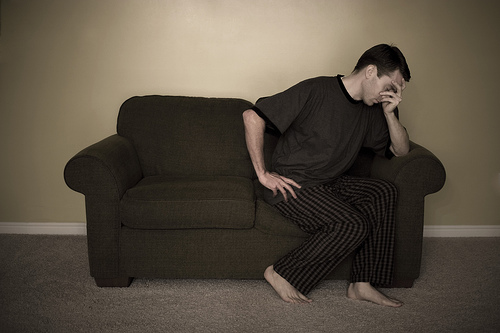
Lazy limbs: arms or legs going to sleep
This is a weird sensation that all of us have had before and it is mainly because our legs or arms get somehow disconnected from our brain. How does this happen? Well, when we put pressure in just one leg or arm while sitting or sleeping, this pressure interferes with the communication between the nerves that connect our limbs to our brain, giving your brain a hard time to tell your body what to do. Then, you experience a funny tingling feeling in the body part that has been “disconnected”. This tingling feeling is the way your brain tells you something is wrong and that you should rearrange your position so that your blood flow and nerve impulses can reach the limb that has fallen asleep.

Funny (or not so funny) bone
There is nothing more painful than the funny bone! When you hit your elbow with something, you experience a very strange feeling, just like tingling funny pain. When this happens, you are not really hitting your bone, but a nerve called the ulnar nerve, which is connected to your brain and is related to the movement of your hand and fingers. Hitting your funny bone doesn’t cause any harm, so don’t worry if you ever hit your funny bone because it is actually the only bone that can never break. There is a condition however, where the ulnar nerve is under constant pressure, causing a lot of pain. This condition is known as cubital tunnel syndrome.
- Important notification about information and brand names used in this slideshow!
- Photo courtesy of narice28 by Flickr : www.flickr.com/photos/49379577@N00/3228378552/
- kidshealth.org/kid/talk/qa/funny_bone.html
- http://www.assh.org/Public/HandConditions/Pages/CubitalTunnelSyndrome.aspx
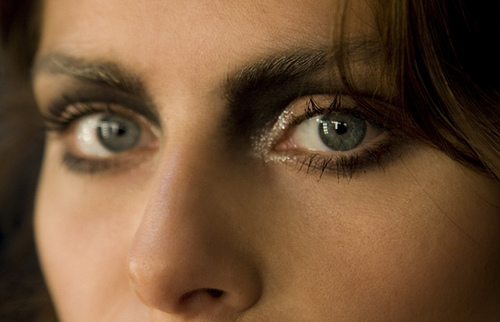
Smoked eyes: eye floaters
Eye floaters are spots in your eyes, mainly grey or black colored. Aging causes changes in the consistence of the vitreous or the jelly-like substance that is inside your eyes, causing it to clump up and form the floaters. Eye floaters can also be caused by inflammation in the back of the eye, hemorrhages and damage to the retina. Floaters are usually harmless and people just learn to live with them, however, they can interfere with vision, and depending on their cause, they might have to be treated immediately to avoid severe eye damage. Treatment includes floaters laser removal and a special surgery to remove the vitreous.
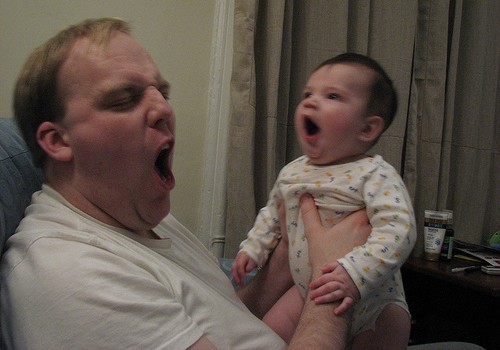
Yawning of... excitement?
Yawning is a very common reflex but it seems that nobody knows what it is for, exactly. We know it is an involuntary movement that starts with our mouth wide open in order to inhale a considerable amount of oxygen. The most common theory says that yawning happens when our brain is running out of oxygen and, by inhaling a vast amount of it, yawning helps the brain to recover. There are some other interesting theories about the function of yawning. One of them says that contagious yawning is related to empathy; another one says that yawning is a sign of arousal, not only in humans, but in other species also. Most of the time, however, we relate yawning to a sense of boredom and lack if interest.
- Important notification about information and brand names used in this slideshow!
- Photo courtesy of Jen by Flickr : www.flickr.com/photos/jenrab/2308543513/
- shared.web.emory.edu/emory/news/releases/2011/04/chimpanzees-contagious-yawning-evidence-of-empathy,-not-just-sleepiness,-study-shows.html#.Um6HapRAJw8
- http://science.howstuffworks.com/life/inside-the-mind/human-brain/question5722.htm


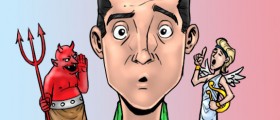




















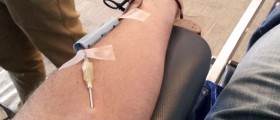



Your thoughts on this
Loading...